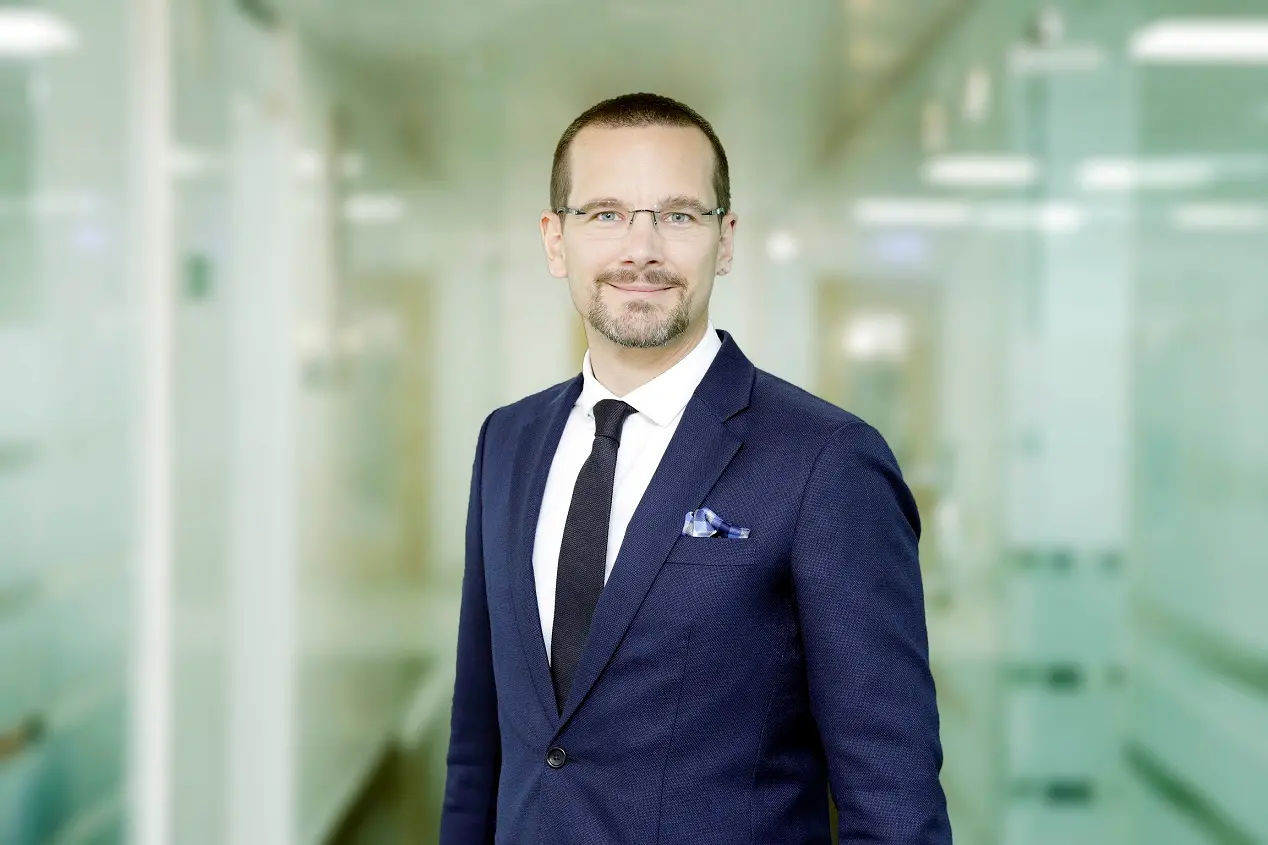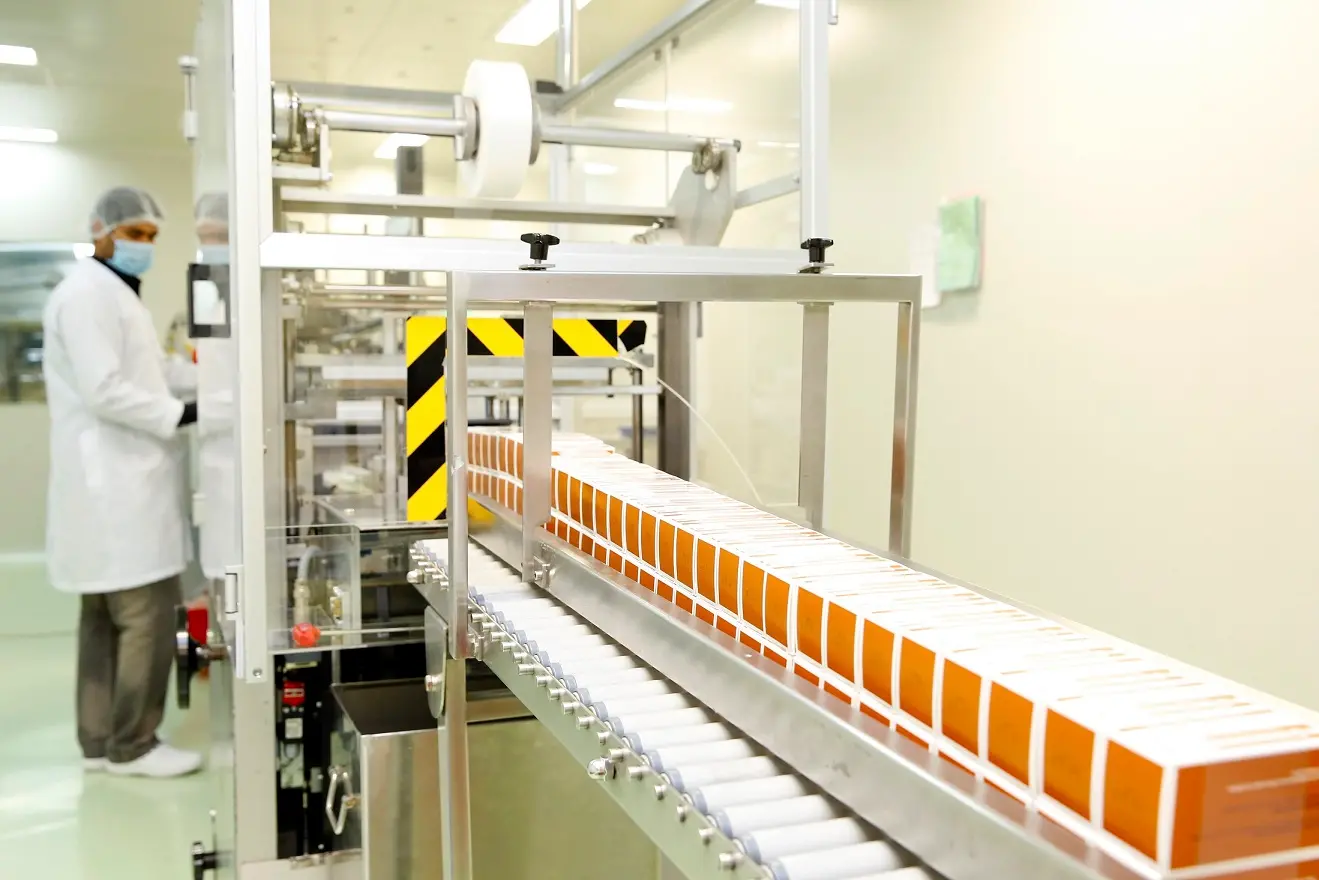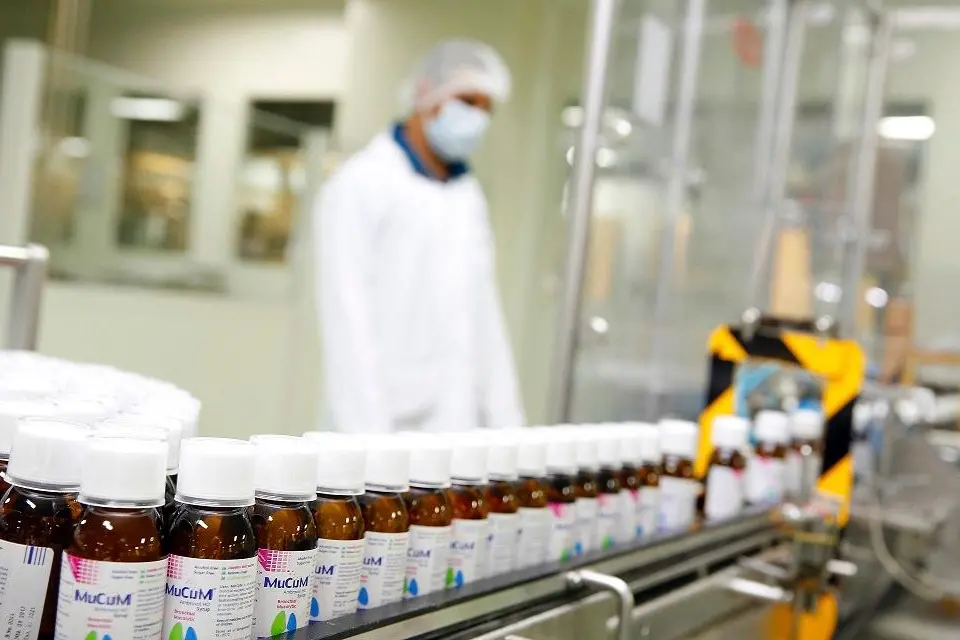PHOTO
Like many companies in the region, United Arab Emirates-based Gulf Pharmaceutical Industries has set itself a clear, ambitious target – to grow revenue to 2 billion UAE dirhams ($544.6 million) by 2020.
On the basis of its 2017 figures, it looks like an ambitious target. The company, which is better known as Julphar, reported revenue of 1.27 billion dirhams last year, which will mean it requires a growth rate of about 20 percent per year to hit its target by the end of 2020.
At the same time, last year’s revenue was actually 12.4 percent lower than the 1.45 billion achieved in the prior year, which the company blamed on a number of one-off factors including currency headwinds, foreign exchange shortages, politically instability in some markets and price cuts. Net profit was also 55 percent lower at 94.9 million dirhams.
First quarter results for 2018 released earlier this month showed a continued decline – revenue was 21 percent lower year-on-year at 290.7 million dirhams and profit fell 56 percent to 18.4 million dirhams.
So what happened? Jerome Carle, who joined Julphar in January last year as chief financial officer before quickly being promoted to acting general manger within two months and then general manger by August, said “2017 was challenging for the industry”.


Julphar general manager Jerome Carle says the company will begin commercial sales of products from its new Saudi Arabian facility in the third quarter of 2018. Image supplied by Julphar
Currency challenges
Speaking to Zawya in an interview at the company’s Dubai Healthcare City office earlier this month, Carle, who was previously an executive at French pharma giant Sanofi, said that the company had suffered from the impact of currency devaluations in Egypt, Tunisia and Algeria.
“There's been also political instability - as you know the situation in Syria and Yemen is very difficult and we have also faced some restriction in terms of importation license(s) in Ethiopia, Algeria and in other markets,” he said.
Despite this, Carle said he expects “very good improvements” to the firm’s performance this year, citing new investments, product launches and geographic diversification as the three main factors that would drive growth.
Julphar has been manufacturing pharmaceuticals from its Ras Al Khaimah base since its formation in 1980. It employs more than 2,000 people across 12 factories in the northern emirate, as well as plants in Ethiopia and Bangladesh. It also took full control of Gulf Inject – a Dubai-based company providing injectable saline solutions to hospitals – last year.
The company now has more than 4,000 registered products, which it sells into more than 50 countries. About 80 percent of its sales are through generic drug products, but the company also has a diabetics division producing insulin crystals and a ‘Life’ division making consumer healthcare products for pain relief, allergies and other common ailments.
It is planning to launch 25 new products in the UAE this year, Carle said, and to register 200 new products across the region. These will all be launched over the next three years.
It has also begun testing at a 300 million Saudi riyal ($80 million) manufacturing facility at King Abdullah Economic City. Although construction work at the plant – a joint venture with its Saudi distributor, Cighala – completed last year, it was only recently certified and approved by Saudi authorities in the first quarter of this year.
“We are now starting validation batches so for production we are confident that we will start our first commercial sales this year in Q3,” Carle said.
Saudi Arabia is Julphar’s biggest market. In 2017, sales in the kingdom were 345.5 million dirhams, marginally ahead of the UAE, where it sold 324 million dirhams worth of product. However, 2017 sales in the kingdom were 26 percent lower than in the previous year.
Vision of health
Carle is particularly upbeat about the long-term prospects for the Saudi market, citing the kingdom’s Vision 2030 plan, which he said would support privatisation efforts and an industry that would be underpinned by greater private health insurance.
“Already, you can see a lot of movement in the private insurance market in Saudi and I think that is just the beginning,” he said.
He argued that the company’s new facility in the kingdom, once operational, will allow it to better serve the market. The plant can produce up to 1 billion packs of solid form pharmaceutical products per year, and up to 300 million bottles of liquid products and offers the chance for it to more quickly react to customer requirements, he said.
A study published last month by BMI Research stated that the transition to privatised healthcare in Saudi Arabia meant the country was likely to remain the region’s biggest pharmaceutical market, growing by 5.5 percent per year from $7.5 billion last year to $9.8 billion by 2022.
Yet one of the main challenges for Julphar’s Gulf operations is payment. The 2017 accounts show that the company has encountered increasing payment delays, with trade and other receivables increasing by 204.7 million dirhams to 889.3 million dirhams, and the total amount outstanding for over a year rose by 100 million dirhams to 244.6 million dirhams.
Carle said that a “significant” part of the company’s business came from providing pharmaceutical products to regional governments via tenders (its two biggest customers were responsible for 55 percent of last year’s total sales, and between them they owe the company more than 1 billion dirhams in unpaid bills). He cited a PwC report (which Zawya could not source) that showed a “clear correlation” between oil prices and the length of government payment terms in the region – i.e. the lower the oil price, the longer it takes for bills to be settled.
“And in 2017, the situation has been challenging for every player in the market. However, we took a lot of action at the end of 2017. We've worked with a major consulting firm and of course all our customers.
“In 2018, we see already a very good improvement in terms of collection and in terms of accounts receivable,” he said.
“I believe that all these actions that we have implemented last year (are) already starting to pay off and we should see a very good improvement in 2018. And, of course, the macroeconomic situation is playing in our favour with oil prices going up to $70-$75.”


Julphar has 12 facilities in Ras Al Khaimah employing more than 2,000 staff. Image supplied by Julphar
Bigger is better
Outside of the Gulf, Julphar began trading via distributors to Mexico, Sri Lanka Uzbekistan and Cameroon last year, and Carle said that it is targeting several other territories – specifically some of the bigger countries in West Africa.
“We look at both the size of the population - of course, demographic is very important - we look at unmet needs… and we look at the fit with our portfolio,” Carle said.
He said that in some markets potential partners have approached it because they have identified that Julphar operates a niche in cost-effective generics, insulin or diabetes management products.
Although generic drugs still account for the bulk of Julphar’s revenue, Carle said the diabetes and lifestyle products divisions are the fastest-growing, because “there are a lot of opportunities in the market and unmet needs”.
He said that there were many markets in the Middle East and Africa where there is still no system in place for people to be reimbursed for healthcare bills, meaning patients have to pay out of their own pockets.
“With the demography, the general economic growth, the increase of purchasing power and the implementation of government or private healthcare insurance you see that the market is expending. Many more patients and consumers have now access to medicine,” Carle said. “And by offering them quality products with affordable price(s), naturally speaking you see a good fit between our portfolio and those markets.”
He also said that it has a research and development (R&D) pipeline of potential new products for its lifestyle division in ranges such as wound care, gastrology and urology.
“And we are also studying new therapeutic areas for Julphar such as oncology, and immuno-oncology, so we have a very broad and diverse portfolio,” he said.
According to research firm Frost & Sullivan, the pharmaceutical market across the six members of the Gulf Cooperation Council was estimated to be worth $8.3 billion in 2016, but is set to grow at a rate of over 5 percent per year to reach a forecasted size of $11.3 billion by 2021.
Dr. Suhasini Molkuvan, programme manager of Frost & Sullivan’s Transformational Health Practice, said that the market’s growth in the region was being driven by rising incomes, better health awareness and the increasing incidence of lifestyle diseases such as diabetes and obesity, as well as public sector investments in healthcare, including the rolling-out of compulsory health insurance.
Despite Julphar’s overall decline in sales last year, she said that the company had managed to increase its market share and is now ranked as the biggest pharmaceuticals company in the UAE by consultancy IMS Health (with a 12.3 percent market share) and the third-biggest in Saudi Arabia (8 percent share).
“The company has been consistently introducing new products in the UAE as well as to newer markets like Latin America and CIS [Commonwealth of Independent States] regions,” Molkuvan said, stating that one of its most eagerly-awaited products is Dandasha – a new drug it has developed to treat erectile dysfunction.
Molkuvan also said the company would benefit from overseas ventures such as the new Saudi production plant and proposed partnerships with local manufacturers in Algeria.
Although the growth rates predicted for the GCC market are healthy at 5 percent per year, it’s clear that Julphar will need to continue its global push into African and Asian markets if it is to achieve its ambitious 2020 revenue target.
(Reporting by Michael Fahy; Editing by Shane McGinley)
Our Standards: The Thomson Reuters Trust Principles
Disclaimer: This article is provided for informational purposes only. The content does not provide tax, legal or investment advice or opinion regarding the suitability, value or profitability of any particular security, portfolio or investment strategy. Read our full disclaimer policy here.
© ZAWYA 2018




















